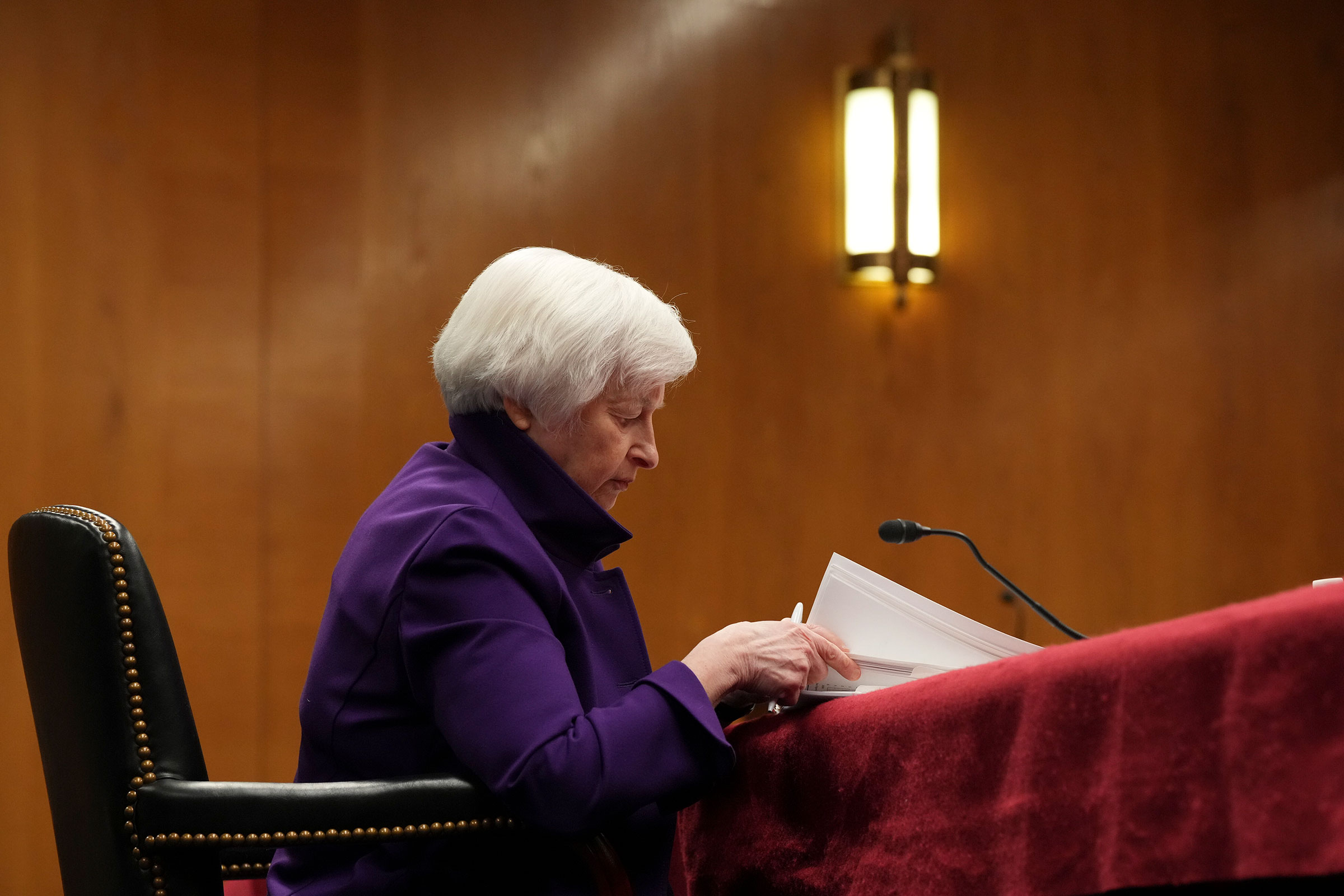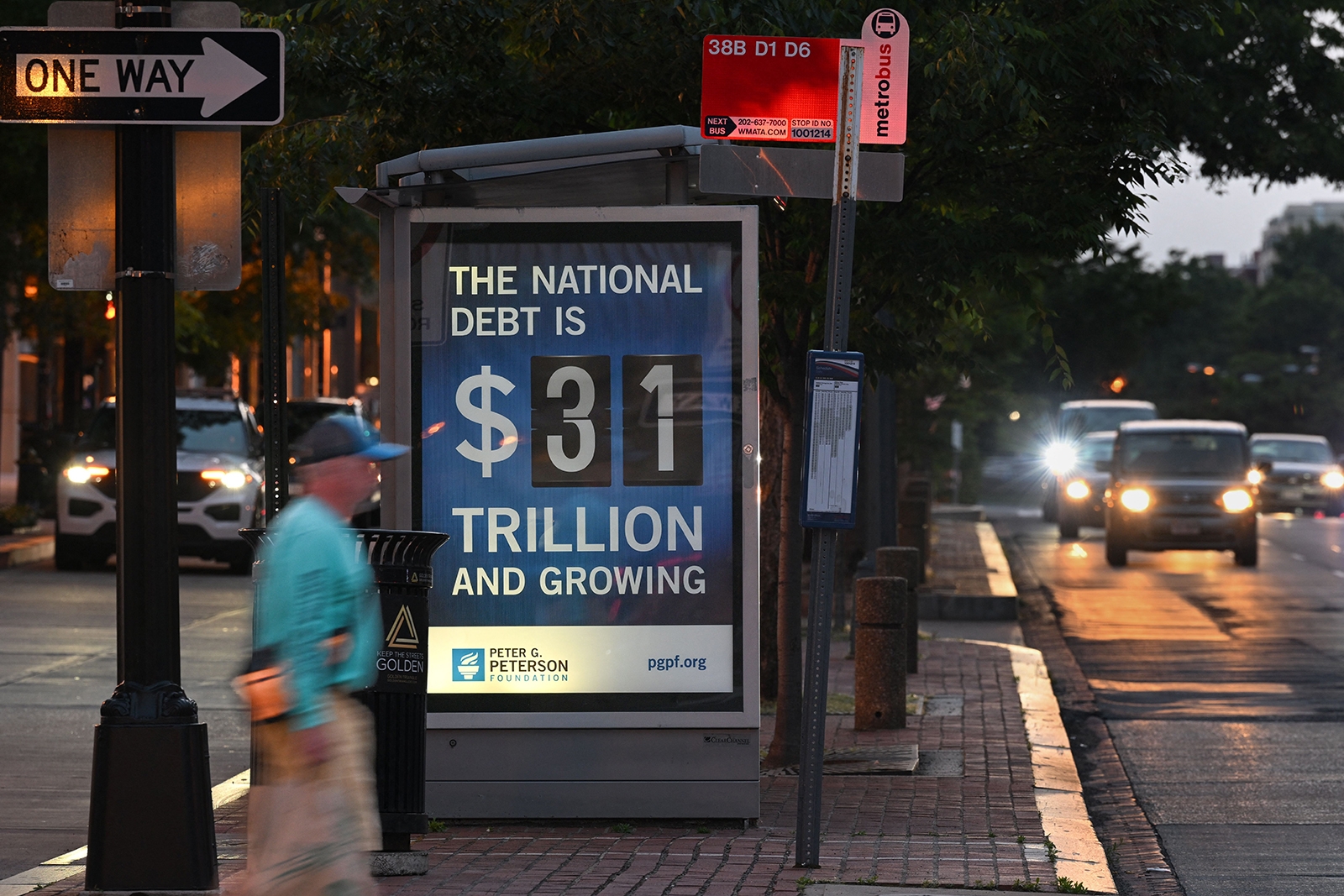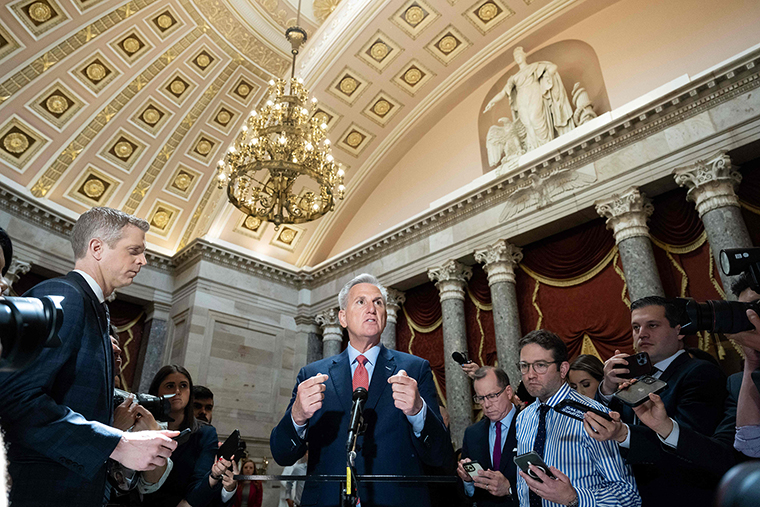
Treasury Secretary Janet Yellen said Wednesday that she will try to be more precise about when the nation could start missing payments in her next advisory to Congress.
But she repeated that it’s tough to pinpoint the X-date, when the nation may not be able to satisfy all its bills, even a few weeks in advance because of the inherent uncertainty of incoming revenue and outgoing obligations.
“I will plan to update Congress shortly and try to increase the level of precision,” Yellen said in virtual comments at The Wall Street Journal’s CEO Council conference. “It's hard to be precise about exactly which day we will run out of resources. [It] seems almost certain that we will not be able to get past early June.”
In her letter to Congress on Monday, she said it is “highly likely that Treasury will no longer be able to satisfy all of the government’s obligations if Congress has not acted to raise or suspend the debt limit by early June, and potentially as early as June 1.”
She stressed on Wednesday that if negotiations between the White House and House Republicans fail to produce a deal in time, “there will be some difficult choices to make.”
“Treasury and President Biden will face very tough choices if Congress doesn't act to raise the debt ceiling,” Yellen said. “And if we hit the so-called X-date without that occurring, there will be some obligations that we will be unable to pay.”
The secretary declined to detail exactly what Treasury can do in terms of payments, but said that “as a general matter, prioritization is not really something that's operationally feasible.”
“Our payment systems have been constructed in order to pay our bills, not to decide which bills to pay and which bills not to pay,” she said.
Treasury has sent a memo to federal agencies asking if they can delay making certain payments to conserve cash, a source familiar with the matter told CNN. The Washington Post first reported on the memo.
Some House Republicans, however, don’t think that the true deadline is on June 1. They argue that Yellen should be more “transparent” about her forecasts.
“It looks like they're hedging now and opening up the door to move that date back,” House Majority Leader Steve Scalise said Tuesday.
Multiple analyses have estimated that the X-date will probably occur in early June, but not necessarily June 1. The Bipartisan Policy Center on Tuesday projected that Treasury will most likely lack the cash to meet all of its obligations sometime between early June and early August, with an “elevated risk” between June 2 and June 13.
If Treasury can continue paying the bills into the middle of next month, then it’s likely the government won’t default until later in the summer. The agency will get another injection of funds from second quarter estimated tax payments, which are due June 15, and from $145 billion in an “extraordinary measure” that becomes available at the end of that month.
CNN’s Alayna Treene and Kristin Wilson contributed to this report.









